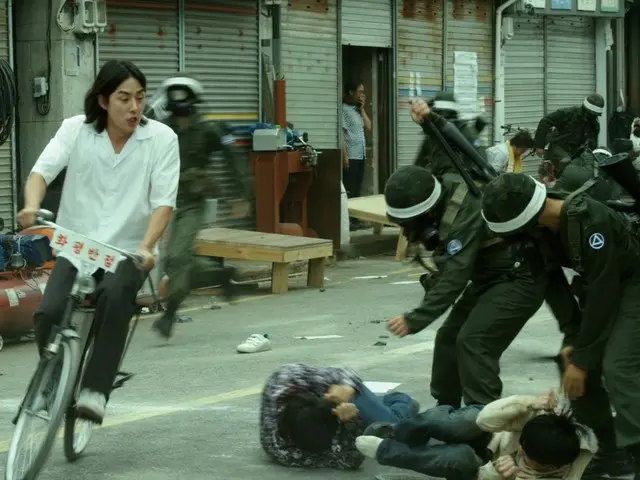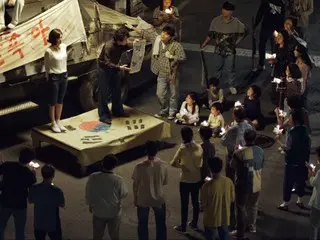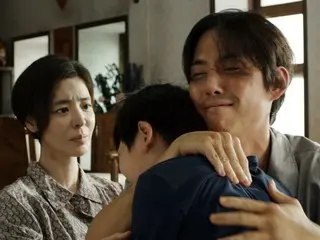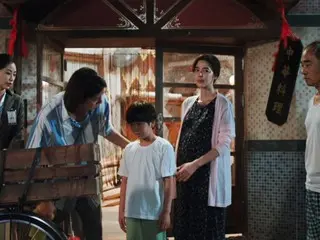"Our Gwangju Uprising" will be released nationwide from April 4th (Friday) at Cinemart Shinjuku and other theaters. Many films have been made in Japan based on the Gwangju Uprising.
The drama was also a big hit, but I would like to summarize what this incident was about. "KCIA Namsan's Chiefs" depicts the dark side of President Park Chung-hee, who had reigned as a dictator for many years.
"Spring in Seoul" depicts the murder of a soldier in a tragic accident, while "Spring in Seoul" depicts the military coup led by Jeong Du-hwan that occurred immediately afterwards. Both films were made into masterpieces based on historical fact and became huge hits.
The Korean film industry. One thing we must not forget is the historical tragedy of the Gwangju Uprising, which was caused by the military regime that usurped power.
The story of "Taxi Driver: A Promise Across the Sea" is about a taxi driver who awakens to a sense of mission to tell the world about the soldiers who massacre good citizens who are calling for democratization.
It was an emotional performance of Ivor and the German journalist. The film focuses on the "ordinary family" who lived in the middle of the incident, and shows how power tramples on the small happiness of citizens.
The film depicts, with humor at times, the reasons why people have been shaken by the tragedy and the preciousness of wanting to protect loved ones.
A new masterpiece of modern historical drama has been born. There have been many movies based on this work, such as "Taxi Driver" and "Spring in Seoul", but I don't really understand it.
What is the "Gwangju Uprising"? The Gwangju Uprising is generally a pro-democracy movement that took place in Gwangju, South Korea, from May 18 to May 27, 1980.
The term refers to the Korean uprising (a civil uprising) and the government's violent suppression of it, and to this day it remains a symbol of the movement for the establishment of democracy in Korean history.
The country was under a military dictatorship led by President Park Chung-hee, and political freedom was restricted. In 1979, President Park was assassinated by the head of the Korean Central Intelligence Agency (KCIA), who was his close aide.
As a result, the government became increasingly unstable, and expectations for democratization spread among citizens to the extent that they were called the “Seoul Spring.”
With the reign of the junta, the government once again intensified military pressure. On May 18, the government attempted to use force to suppress a protest against the military regime in Gwangju, resulting in many civilian deaths and injuries.
This resulted in further intensification of the protests. The protests spread, and the citizens of Gwangju united to launch a large-scale movement. The citizens occupied the city hall, erected barricades, and the demonstrations continued for several days.
The protests continued for several years, but the government finally sent a large military force to Gwangju and took control of the city by force on May 27. The attack resulted in further civilian deaths and thousands of arrests.
The official death toll is said to be around 150 to 200, but the actual number is thought to be several times higher, including many civilians who had nothing to do with the demonstrations.
The Gwangju Uprising left deep scars on Korean society, but at the same time it was a turning point in the democratization movement. This incident has been a major factor in the Korean democratic movement since the 1987 democratization declaration to this day.
The film focuses on the story of an "ordinary family" who lived in the middle of the Gwangju Uprising, and shows how power can be used against citizens.
The story depicts, with humor at times, how the small happiness of a child was trampled upon, and how the desire to protect a loved one even in the midst of tragedy is precious.
"1980: Our Gwangju Incident" will be released nationwide from April 4th (Friday) at Cinemart Shinjuku and other theaters. Director and screenwriter: Kang Seungyeon Cast: Kang Shinil, Kim Gyuri, Baek Seunghyo
Ng, Han Suyeong, Song Min-jae 2024 / Korea / Korean / 99 min. / Cinemascope / 5.1ch / Subtitle translation: Honda Keiko / Subtitle supervision: Akizuki Nozomi / Original title: 1980 / Eirin G
Distributor: Klockworx https://klockworx.com/movies/1980/ © 2024 JNC MEDIA GROUP, All
Rights Reserved. Released nationwide from Friday, April 4th at Cinemart Shinjuku and other theaters.
2025/03/28 15:03 KST
Copyrights(C)wowkorea.jp 5








